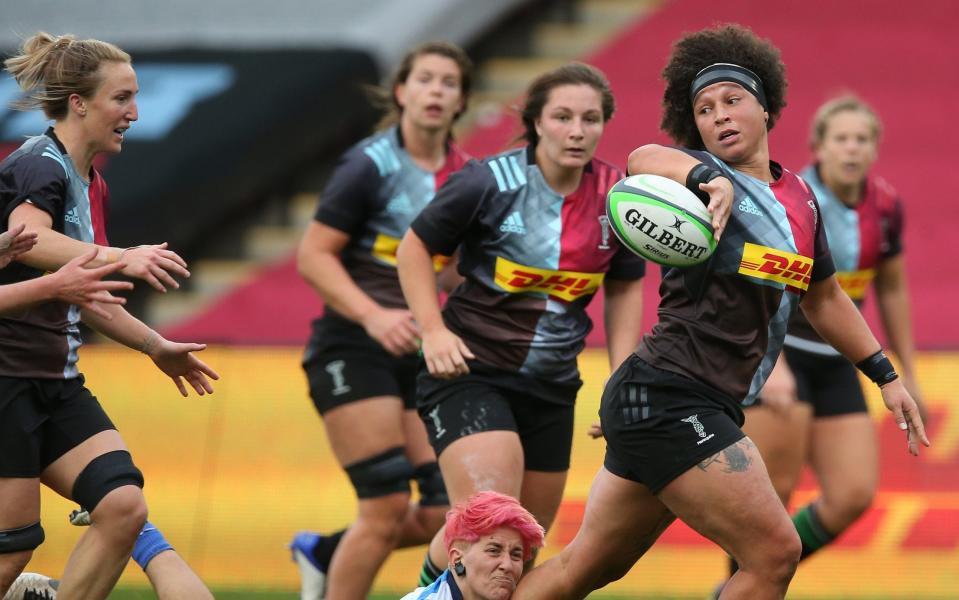Integrity of the Premier 15s in the spotlight after two England women's players test positive for Covid-19

Questions are growing over the integrity of the Premier 15s after it emerged one England women's player and a staff member tested positive for coronavirus before the squad's national camp earlier this week.
Both cases have been confirmed by the Rugby Football Union, with a third player also unable to attend the camp at England’s Pennyhill Park base in Bagshot due to being a household contact.
Under international protocols, women's players must be tested before national camps, unlike in England's elite domestic league, which has been allowed to continue with adapted law variations during the lockdown.
It comes as Harlequins' fixture with Wasps became the latest Premier 15s game to be postponed on Friday, just days after Harlequins player and US international Kristine Sommer questioned whether it was safe for the league to continue without coronavirus testing.
Sommer wrote on social media: “I’ll say it 100,000 times how grateful I am to play rugby in the UK, but when is player safety a concern? No real bubbles - no testing. This should be discussed, right?”
On the same day that London mayor Sadiq Khan declared a major incident in the capital - where case numbers have exceeded 1,000 per every 100,000 people - Harlequins’ cited "ongoing Covid-19 concerns" within its camp as the reason for the cancellation.
Here’s a question - do we think Women’s Premiership will bring in testing to keep players safety up? Asking for myself and all current women’s players. #lockdown #tier5 🤔
— Kristine Sommer (@KristineNSommer) January 4, 2021
The match is the club's second fixture to have been cancelled in the past week, after the league leaders’ top-of-the-table clash against league champions Saracens was postponed on January 2.
Law variations have been introduced in the Premier 15s - including limited scrums and 35-minute halves - in a bid to reduce face-to-face contact and minimise possible Covid-19 transmission.
With the current Covid-19 variant known to be much more transmissible than earlier forms of the virus, the RFU insists the current law variations are adequate, having held discussions with Public Health England, which is “comfortable” for the league to continue in its current format.
France’s top women’s league has been suspended since November, while Ireland’s Energia women’s domestic competition is yet to start.
The Women’s Six Nations also remains shrouded in uncertainty, with a date yet to be set for the start for this year’s competition, although the men’s tournament is due to begin on February 6.
It is understood that England players have been told to expect the tournament to go ahead and, like Wales and Ireland, have further pre-tournament camps scheduled throughout January.
One of the biggest obstacles tournament organisers face is whether the women’s championship can fall under ‘elite sport’ across all six nations - which would allow teams to travel and be exempt from certain travel and quarantine restrictions.

